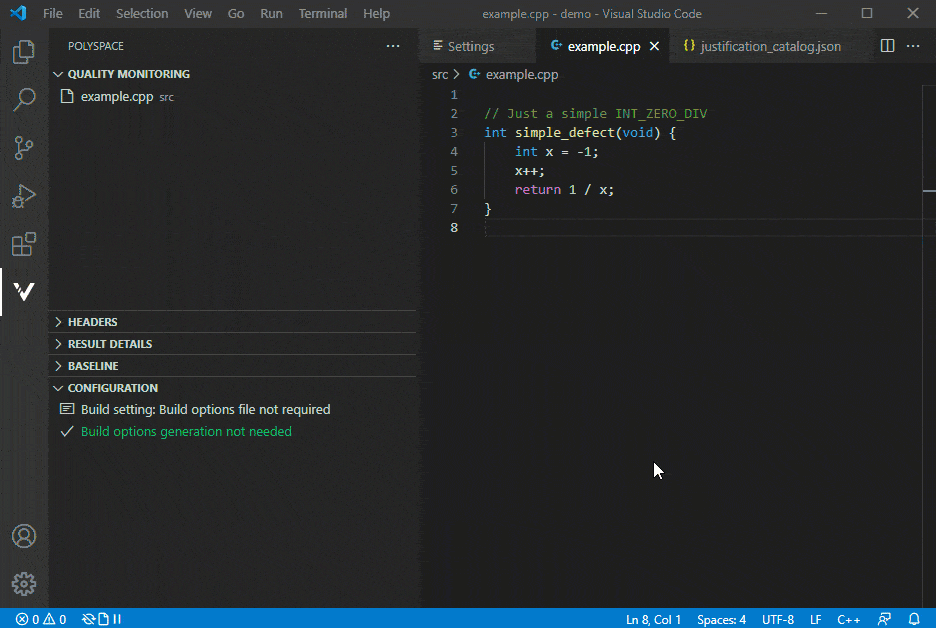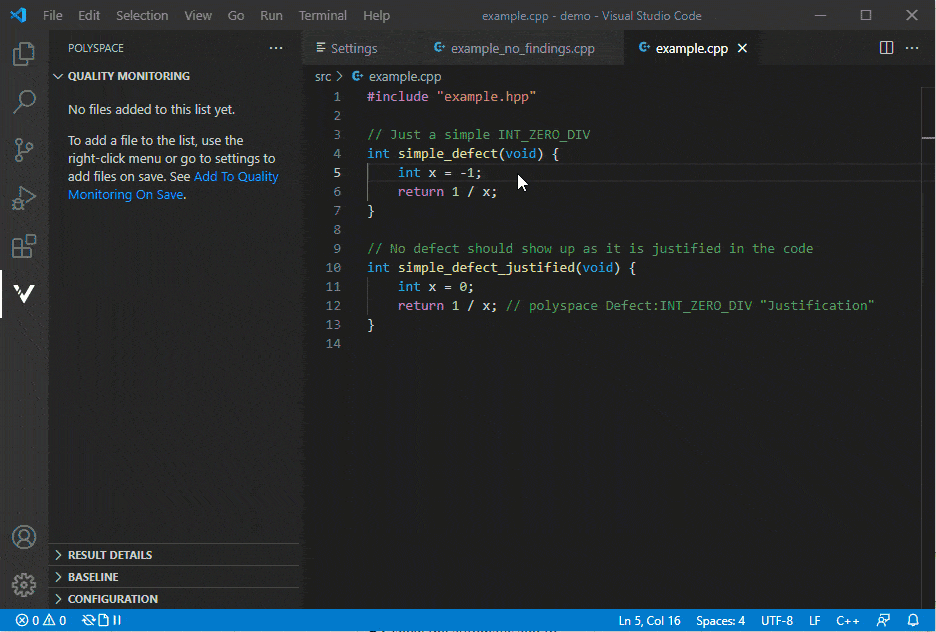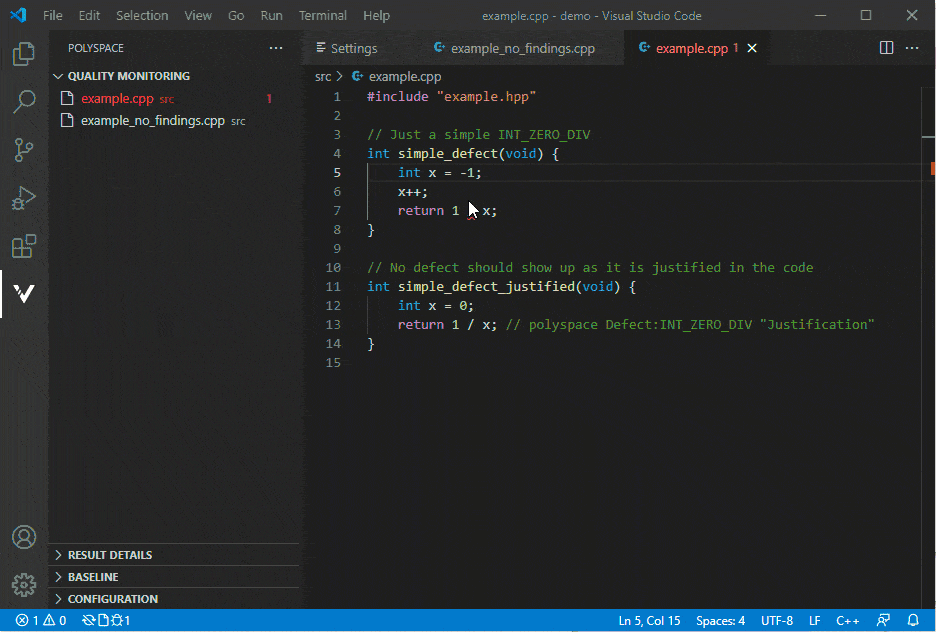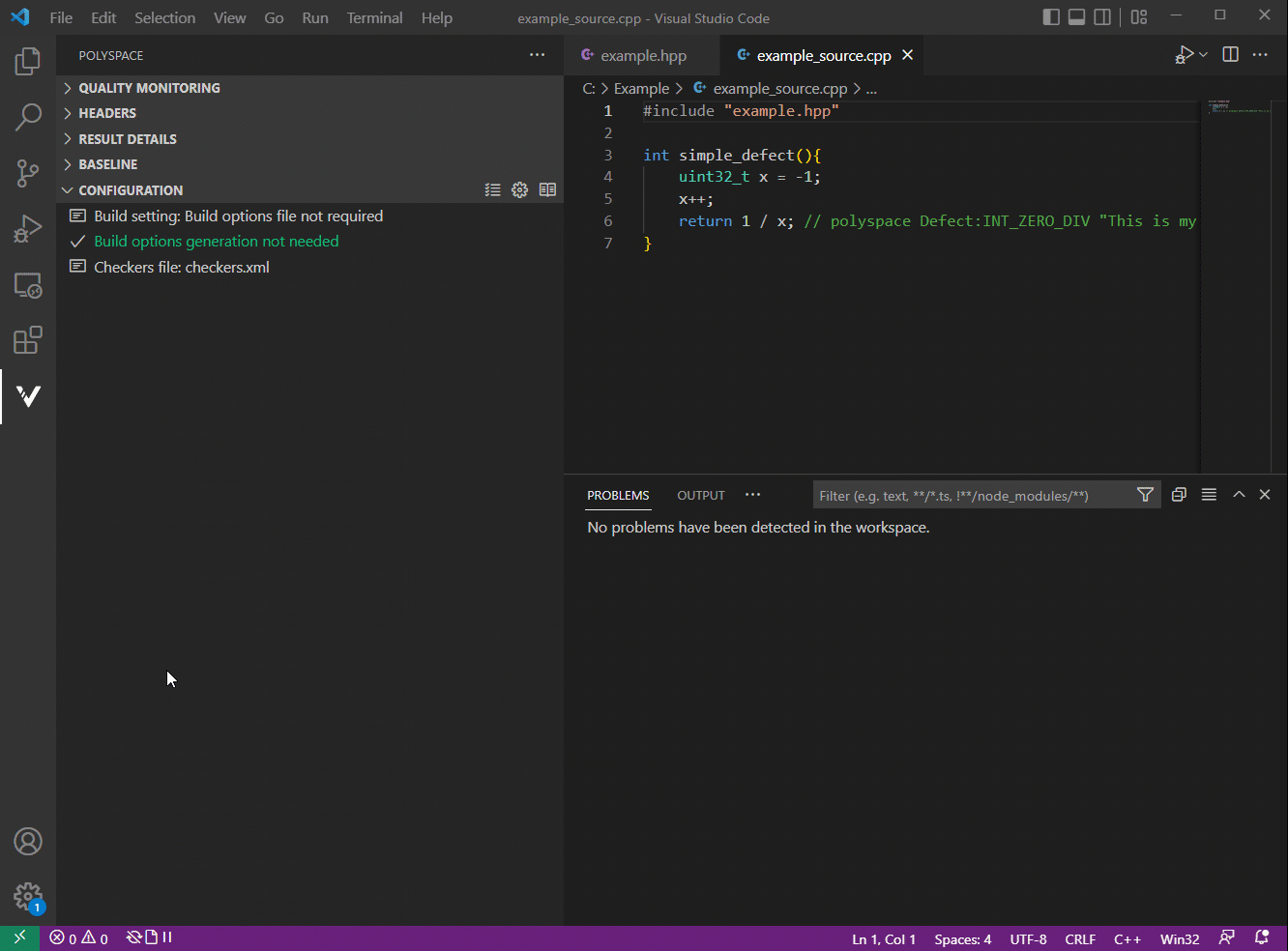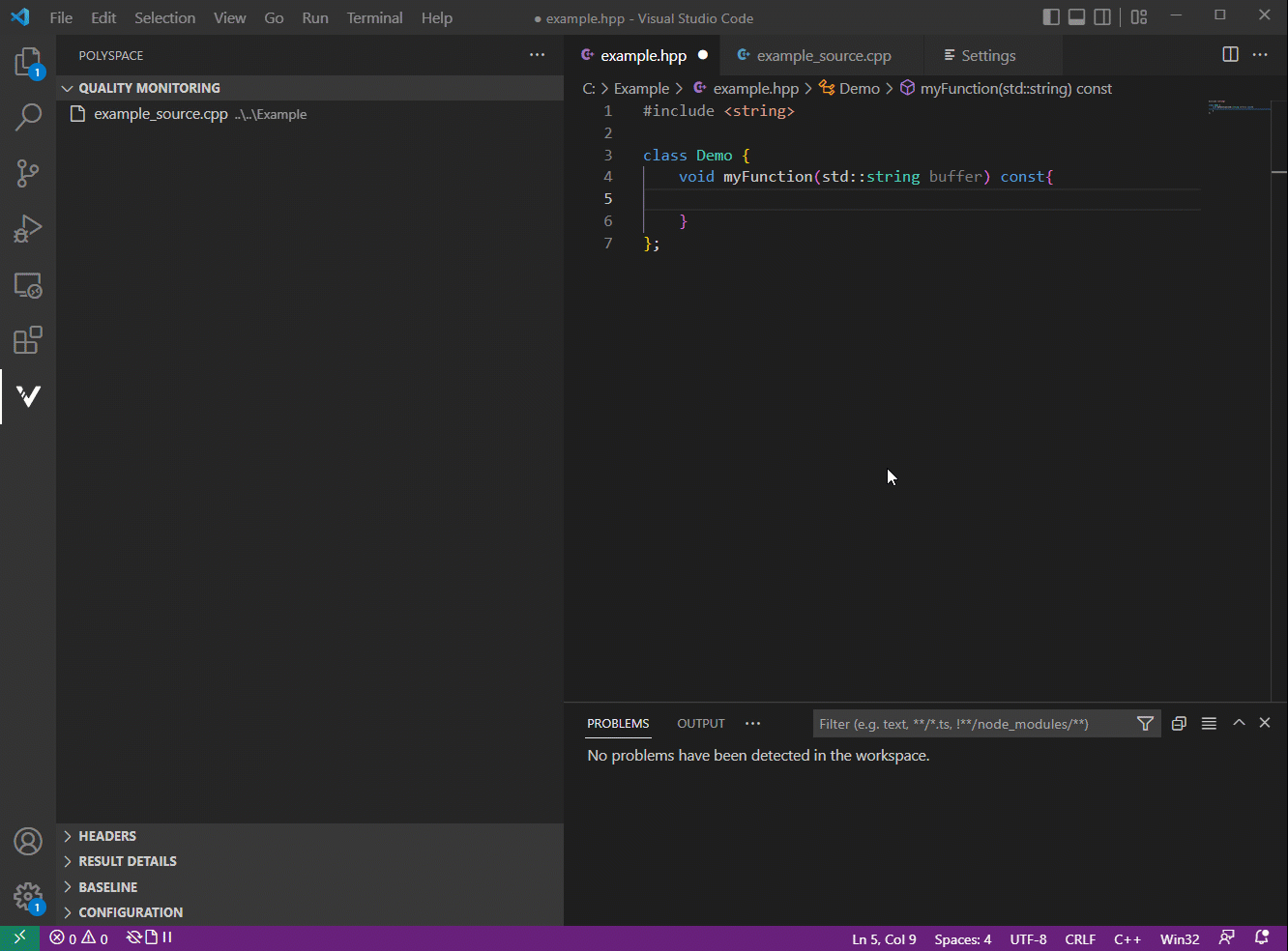在 Visual Studio Code 中配置 Polyspace as You Code
在开始您的首次分析之前,请配置 Polyspace as You Code 扩展。配置该扩展后,您将能够自定义工作站和分析预设项。切换不同会话时,设置将保持不变。
在本教程中,您将执行以下操作:
手动配置编译。
设置自动化质量监控。
设置在保存时运行的分析。
配置 Polyspace 检查项。
分析头文件。
设置分析脚本。
在 Visual Studio Code 中打开文件。点击 Visual Studio Code 边栏中显示的 Polyspace® 图标 ![]() ,以打开 Polyspace 扩展边栏。该边栏包含本指南中引用的各个窗格,例如质量监控、配置和基线。
,以打开 Polyspace 扩展边栏。该边栏包含本指南中引用的各个窗格,例如质量监控、配置和基线。
手动配置您的编译
您可以选择手动配置您的编译。手动设置分析包括指定编译选项。您可以从 Visual Studio Code 编译任务或 JSON 编译数据库文件中提取编译选项,或者在编译选项文件中指定它们。
对于本教程,您无需手动设置编译选项。
点击 Polyspace 边栏的配置窗格中的设置图标  或转至设置。请搜索
或转至设置。请搜索 polyspace.analysisOptions 来查看各种编译选项。手动设置:编译设置允许您选择如何提供选项文件。请使用同一文件类型的手动设置:编译选项来提供选项文件的路径。
有关编译选项的详细信息,请参阅Configure Analysis Settings。
设置自动化质量监控
Polyspace 提供了一个质量监控列表来跟踪已编辑的文件。Polyspace 可以同时分析质量监控列表中列出的所有文件。您可以选择让 Polyspace 自动将文件添加到质量监控列表中或手动添加文件。
如果 polyspace.analysisOptions.addToQualityMonitoringOnSave 设置处于活动状态,则 Polyspace 会在保存文件时自动将文件添加到质量监控列表中。您可以通过在文件编辑器中点击右键并选择将文件添加到 Polyspace 质量监控列表中,手动将文件添加到列表中。
启用自动化质量监控。点击 Polyspace 边栏的质量监控窗格中的设置图标  ,并选中保存时添加到质量监控复选框。或者,打开设置选项卡并搜索
,并选中保存时添加到质量监控复选框。或者,打开设置选项卡并搜索 polyspace.analysisOptions.addToQualityMonitoringOnSave 选项。选中该复选框以激活设置。
设置在保存时运行的分析
与质量监控类似,Polyspace 可以在保存文件时自动对质量监控列表中的所有文件运行分析。另外,您还可以手动对单个文件或一组文件运行分析。通过点击质量监控列表中的文件旁边的 Run Polyspace Analysis 图标 ![]() ,或在文件编辑器中右键点击并选择运行 Polyspace 分析手动触发分析。
,或在文件编辑器中右键点击并选择运行 Polyspace 分析手动触发分析。
启用自动化文件分析。点击 Polyspace 边栏的质量监控窗格中的设置图标  ,并选中保存时分析文件复选框。或者,打开设置选项卡并搜索
,并选中保存时分析文件复选框。或者,打开设置选项卡并搜索 polyspace.analysisOptions.analysisOfFilesOnSave 选项。选中该复选框以激活设置。
配置 Polyspace 检查项
Polyspace 将针对一组默认的缺陷和标准进行检查。您可以根据进行检查时要依据的认证标准自定义这组标准和缺陷。请使用设置选项 polyspace.analysisOptions.manualSetup:checkersfile 为您的工程设置检查项 XML 文件。
启用 AUTOSAR C++14 检查项。在 Polyspace 边栏的配置部分中,点击配置检查项图标  以打开检查项选择窗口。
以打开检查项选择窗口。
您可以创建、保存检查项选择文件,并打开已保存的检查项选择文件。有关详细信息,请参阅在 Visual Studio Code 中为 Polyspace as You Code 配置检查项。
点击检查项选择窗口的左侧窗格中的 AUTOSAR C++14。在右窗格中,选中全部复选框以启用所有 AUTOSAR C++14 规则。点击右上角的保存更改以保存您的检查项选择,然后关闭窗口以返回到 Visual Studio Code 应用程序。
分析头文件
您可以像对待源文件一样对头文件运行分析。
首先,定义头文件的扩展名。点击 Polyspace 边栏的头文件窗格中的设置图标  。或者,打开设置选项卡并搜索
。或者,打开设置选项卡并搜索 polyspace.otherSettings.headersExtensions 选项。
点击添加项并添加文件扩展名 .hpp(如果该扩展名尚不存在)。点击确定将文件扩展名保存在列表中。
手动将 example.hpp 头文件添加到质量监控列表中,并通过点击运行 Polyspace 分析按钮 ![]() 启动分析。
启动分析。
设置分析脚本
您可以提供一个脚本,以在 Polyspace as You Code 中配置和运行 Polyspace 分析。
对于本教程,您无需设置脚本。
如果您有一个脚本,请打开设置选项卡并搜索 polyspace.analysisOptions.script 选项。
在脚本文件设置文本框中提供该脚本的路径。使用列表为分析设置设置启用脚本。
配置 Polyspace as You Code 扩展后,即可运行分析并审查结果。

